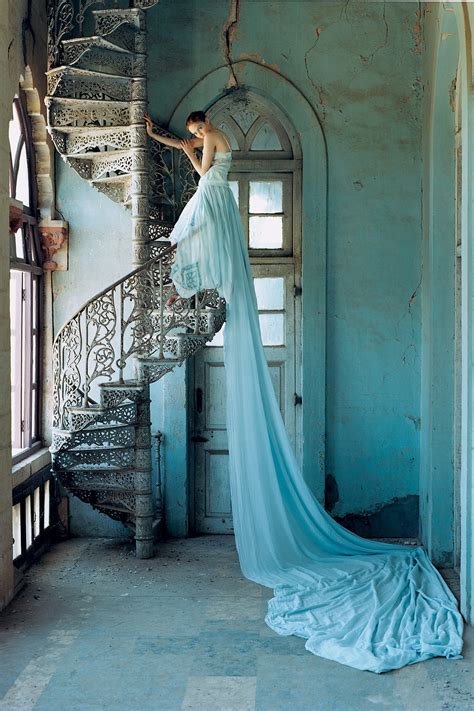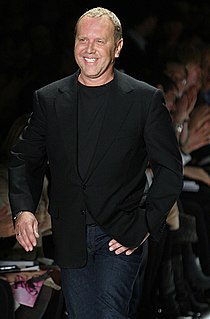Top 110 Zeitgeist Quotes & Sayings - Page 2
Explore popular Zeitgeist quotes.
Last updated on April 14, 2025.
The average person might articulate them differently, but we all think about interpersonal relationships in one way or another. Writers just express that in different ways and capture it in different ways. To some degree, we're all thinking about the same things. It's the zeitgeist. The trick, in a way, as a writer, is to hope that your interests in some sense link up with the culture around you.
It's pretty crazy. I was thinking about that today, how 'True Blood' has penetrated so much of the cultural zeitgeist. It's truly amazing; it's incredible! The cover of 'Rolling Stone' is major. What's next, the cover of 'Vanity Fair?' When I'm in a 'New Yorker' cartoon, then I will feel like I have made it.
It really makes little difference in the long run whether The Book of the Law was dictated to [Crowley] by preterhuman intelligence named Aiwass or whether it stemmed from the creative deeps of Aleister Crowley. The book was written. And he became the mouthpiece for the Zeitgeist, accurately expressing the intrinsic nature of our time as no one else has done to date.
I always thought that art that is produced somehow has to reflect the zeitgeist or the ambiance and the time and the history in which it is produced. I think it's inescapable. It's like we look back now, at work done savoring the thirties, and you can almost tell it was done during that period of time. Now maybe, that's a style of period or something, I don't know. I think my work, or the things that interest me, come out of my reaction to history.
I've said this a lot lately, too: if, 20 or 30 years down the road, when everything's said and done, I was never able to achieve that level of zeitgeist again, then so be it. I know how rare it is for anybody to do that. But I also feel like, OK, we're getting on to 25 years of putting out records: that's also kind of rare air for anybody who makes music. And I think you just end up kind of grateful for every opportunity that comes along.
There seems to be something in the zeitgeist, and maybe it's a function of - I'm no analyst, nor am I a psychologist - when you look at things and say, What if I could go back and change things? I think we live in a world right now where people are asking those questions a lot. What if we could go back and change what we did? How would we change the way we handled things in the Middle East, and how would we change things with the banking industry, and how would we change economic and educational issues?
Not everyone's going to agree to eat chicken wings, that's obviously an enormous catch to our show, that's an enormous ask. It's not easy to get anyone to do your show, but on 'Hot Ones,' you have to eat scorching-hot chicken wings. So it's always going to be a challenge to book, in my opinion, no matter how popular it is in the zeitgeist.
Media economics now are so dependent on people saying controversial things and an entire mini-news cycle springing up around this thing that that person said. It really behooves people in the public eye to know what's in the zeitgeist and to have opinions on it. It becomes a thing of is this genuine, or is this just a way for celebrities to keep themselves relevant in a time when this is obviously a hot topic?
I love fashion because it's plugged into the zeitgeist, so it's always changing. Thirty years ago, I could never have predicted I'd be where I am today, so I know I don't know what's going to happen in the next five years or the next 20 years. I have my predictions—I'm sure technology will continue to have an impact on fashion, particularly the way people shop. I think quality will be increasingly important—we're moving away from a time of fast fashion. But really, the only constant in fashion is that you must keep moving forward, otherwise you'll be left behind.
Personally, I don't think it's possible to do great things alone or through individual actions. On the contrary, I think it is only possible to know what to do in a specific moment once you have understood the zeitgeist, and it is only possible to move things forward if you have a sense of responsibility. And that is exactly the goal I have set for myself: to try to encourage France and the French people to change and develop further.
Every man who speaks out loud and clear is tinting the "Zeitgeist." Every man who expresses what he honestly thinks is true is changing the Spirit of the Times. Thinkers help other people to think, for they formulate what others are thinking. No person writes or thinks alone--thought is in the air, but its expression is necessary to create a tangible Spirit of the Times.
Breaking new factual ground is not what Zeitgeist is about, however. Rather, the video is a powerful and fast-acting dose of agitprop, hawking its conclusions as givens. Unfortunately, like most propaganda, it doesn’t play fair with its intended audience. At times, while watching it, I felt like I was getting Malcolm McDowell’s treatment in Clockwork Orange: eyes pried wide open while getting bombarded with quick-cut atrocity photos.
When I first knew Bob Dylan, he lived in the Village. And for a man who, years after, would disdain publicity or any attempts at interviews, whenever I'd write something about him, he'd be on the street corner saying, `When's it going to run? When's it going to run?' But I must say that album that was - it was the second album he did, and though I've never been a fan of his guitar-playing, he did - I have to admit, he did catch the Zeitgeist of the time.
I think at one point, a whole new younger generation of critics come in and they're really aware of zeitgeist in their group, and the older artists tend to get forgotten as their critics retire and do other things or stop paying attention. So there's a factor of aging that I think is to be considered, too. As a middle-aged artist, you kind of get put on a shelf for the young ones.
In the Germany of the l920s, the Weimar Republic, both organismic biology and Gestalt psychology were part of a larger intellectual trend that saw itself as a protest movement against the increasing fragmentation and alienation of human nature. The entire Weimar culture was characterized by an antimechanistic outlook, a "hunger for wholeness". Organismic biology, Gestalt psychology, ecology, and, later on, general systems theory all grew out of this holistic zeitgeist.
I think one of my favorite pieces I've ever done on the show which was about Hezbollah Israel conflict in 2006 and it was very pointed. It was a beautifully crafted piece of satire and it's a weird thing to say but it had a joke in there about 9/11 and I remember the audience sort of laughing but also kind of not knowing how to respond to that joke and it was just so - and I remember the tension after we did this joke on the air and there was this palpable gasp in the audience, but they were also laughing. And I thought oh, wow, that is something that is not being said in the Zeitgeist.
Steve Jobs did not start started Apple as a scam. But he understood early on the power of marketing. The idea of the computer as a bicycle for the human mind - I think that was something he believed. He believed in making people comfortable with these machines, which is why he spent so much time thinking about how to design them a certain way, how to make them so user-friendly and interactive, and why he spent so much time studying the Zeitgeist.
Outside of, as a kid, just wanting to be able to fly and run faster than a speeding locomotive and being able to leap tall buildings in a single bound, we'd like to hope that, when push comes to shove, we can do the right thing. I think as long as there is that hope in our society and in the zeitgeist of superheroes, Superman will be relevant.
'Catfish' is a great project that we have a blast doing, and it's really fun and at the zeitgeist in the world - certainly in the U.S., hopefully in the U.K. and I imagine the rest of the world. Being at the centre of this discussion and this subject has been really incredible as both a filmmaker and someone who likes to participate in pop culture.
Absolutely I'm going to be talking about it, because it's in the zeitgeist and it's happening. It's an election year. It's the biggest election. Every election is a big election, so whenever anybody says that it kinds of grates me, but it's a fiasco. It's turned into a complete circus act, so of course you have to make fun of it, but responsible journalists definitely are being irresponsible. They're giving [Donald Trump] so much air time.















































